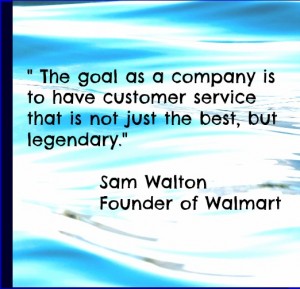6 Customer Service Representative Attributes That Lead to Better Customer Relations
Customer relationships are formed through the use of sound customer service skills and a variety of service strategies that are used to welcome, serve and support each customer or client as an individual.
Customer service representatives should be hand-picked by management, provided with the best customer service training possible, given the proper tools and supported by supervisors and top management. Only then do they have a chance of being successful at their jobs and winning the hearts and minds of customers who contact the organization.
To help ensure that a customer service representative is able to exceed customer needs, wants and expectations, deliver excellent customer service and help encourage brand loyalty, they must possess the following minimal attributes:
Ability to Listen Well
One of the most important attributes that a great customer service representative needs is the ability to listen effectively. When interacting with a customer or potential customer it is crucial that an employee ask open ended questions to discover a customer’s needs and then shut up to allow the customer to communicate their issue, need, concern or complaint. Once these are adequately understood, the representative can then start to address what their customer said.
Attentiveness
It is not enough to just listen to a customer’s verbal messages. To be an effective service provider, they must also be able to “read” nonverbal cues and interpret them effectively.
Flexibility
It is sometimes hard to tell what a customer wants or needs. During a conversation, a good customer service representative will recognize when a customer shifts gears or changes the direction of a conversation. This may be through the words they use, questions they ask or nonverbal signals that come across during the conversation. When this happens, the employee should be ready to change their posture, tone, selection of words and do other things to address the new issue or situation.
Determination
Customers expect to be appreciated, listened to, and served to the highest possible level. That is why anyone working with customers must have a sound product and service knowledge, strong customer service skills, and the tenacity to do what it takes to try and meet their customer needs and expectations.
Empathy
When a problem arises, customers typically expect that customer service representatives will put forth the effort to try to understand their issue and will then go out of their way to help resolve it.
Positive Attitude
Ultimately, what comes through and is remembered in any customer-service provider encounter is how the customer believes they were treated. If they walk away feeling that they were recognized and served as an individual and not with a cookie cutter approach strategy, they are more likely to maintain customer loyalty. They are also more likely to tell others about their positive service experience.
To make that happen, service providers must be conscious of their verbal messages and nonverbal cues. A smile, upbeat voice tone, willingness to take extra time and effort serving the customer and other similar positive approaches to building a customer relationship can go a long way toward customer satisfaction.
If you are looking for specific ideas and strategies for building and maintaining sound customer relationships, get copies of Please Every Customer: Delivering Stellar Customer Service Across Cultures and Customer Service Skills for Success.

